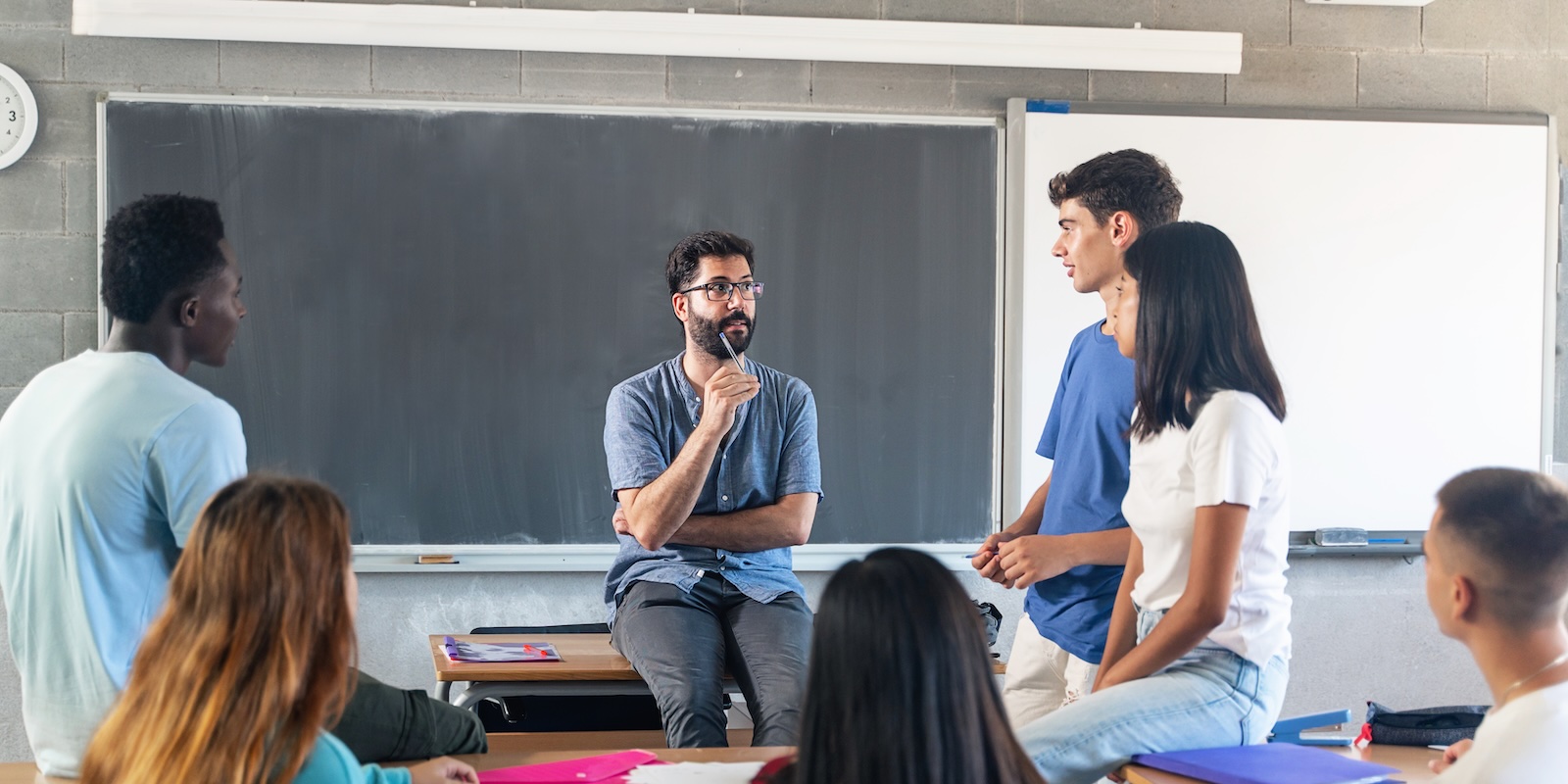Education Transformation through Life Skills for Student Success

An experienced K-12 leader reflects on how education can be transformed by seeing students as more than a score. He offers three essential life skills for student success—helping all students to succeed in their journey of learning and life.
Today schools have many programs designed to provide students the best learning experiences and opportunities. From courses, clubs, and athletics, to before and after-school interventions and summer programs, there is a broad menu of options for meeting the diverse needs, goals, interests, and aspirations of our students.
Yet, there is something that we have missed along the way — life skills for student success. Because of federal and state mandates, schools have had to focus more on high-stakes testing and less on meaningful learning for students. Although I am not an opponent of high-stakes testing, over my career as an educator, I have seen systematic failures throughout the education system (nationally) when test scores carry too much weight, and essential life skills are an afterthought.
Fortunately, there is a growing movement across the country that recognizes students as more than a score and prioritizes the need for students to develop life skills throughout their PreK-12th grade education. While many life skills merit focus, I would posit that some are especially critical—yet most sorely lacking—if we are to restore civility and a collective sense of well-being for this generation and those to come. These three life skills are service, humility, and authenticity.
Three Essential Life Skills for all Students to Succeed
Service. Service to others transcends race, gender, and socio-economic status. In Fleming County Schools, we stress the importance of service-learning and have even gone as far as to make service learning a promotion requirement for all 3rd, 6th, 8th, and 12th-grade students. Every student learns why it is essential to give back to others and their community and to be missionaries of hope. President George H.W. Bush said, "In crucial things, unity. Important things, diversity. All things, generosity." We need to teach students today to give back, to be servant leaders, and to discover how empowering and fulfilling paying it forward is.
Humility. The national culture is leading to generations of students who are more focused on "I" and "Me" and alarmingly fewer students are about "We." I am all for competition; I am competitive, but we are missing opportunities to teach key attributes of humility in our schools.
Now I recognize that parents and guardians play a significant role in this focus on "number one," but even the MVP of a football team can practice humility. Great athletes and leaders focus on recognizing others instead of focusing on their achievements and accolades. For instance, Michael Jordan once said, "Talent wins games, but teamwork and intelligence wins championships."
In education, we have only managed to lessen the importance of humility in society. We applaud, recognize, and even post names on walls of students who win the school spelling bee, have the highest ACT/SAT score, or have perfect attendance. Occasionally one sees citizenship recognition, but it is exceedingly rare in elementary schools, and almost non-existent in middle and high schools. Yes, we can continue to focus on recognizing individual student achievement. Still, we must take the time to teach students how to practice humility and practice the art of credit sharing. As students win, we need to show them that it's commendable, honorable, and healthy to share the credit with others.
Authenticity. Every student is unique, and this is a key strength. One of my favorite quotes from an anonymous author acknowledges, "I don't color inside the line and that is okay." We need to appreciate, value, and recognize each student's uniqueness, but honestly, there is another side to this that we must acknowledge and appreciate.
Over my twenty years in education, I have seen far too many times, students trying to be unique or different, compromising their true selves. Not only is it okay to be unique—and sometimes flashy comes with that—but so is being just an "average Joe." Allow me to take this a step further. Teaching students that living a simple, meaningful, and authentic life is commendable and admirable. Society, television, and education sometimes mislead students to believe that a life of riches and possessions ought to be the goal. But we should inspire students to live an authentic life, focused on family, friends, and community.
While I want every graduating student to have a good job with a good salary, I also want every student to have a meaningful and authentic life. As an educational leader, I work each day to convey these words from an anonymous author, "A meaningful life is not being rich, being popular, being highly educated, or being perfect. It's about being real, being humble, being able to share, and touching the lives of others."
In the world of educational transformation, we often focus too much on staying in sight of the shoreline. The traditional playbook prescribes an all-consuming focus on achievement gaps, culture, strategy, and programs. I believe that within any meaningful transformation, the development of life skills for student success will create a lasting impact on students far more significant than the traditional metrics of grades and scores. Imagine—if we were to measure these components, instead of a test score—how much more engaged our students would be.
What life skills for student success do you consider essential? Learn how Intellispark can help.
Join the Conversation
Are you interested in innovative practices for improving student success, insights from our members, recent news, and engaging webinars? Check out our resources for the latest updates.




